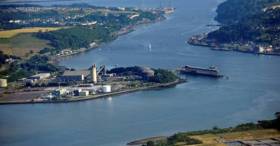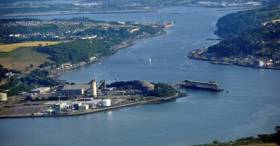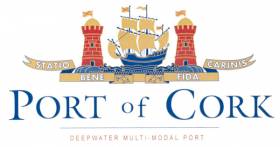Displaying items by tag: Marino Point
Redevelopment Plans of Marino Point to Be Made Public
According to EchoLive questions regarding plans for the long-awaited redevelopment of Marino Point, the former Irish Fertiliser Industries (IFI) site, near Cobh, will be taken by Port of Cork staff at two events in September.
Two public information evenings are due to take place regarding the Belvelly Port Facility masterplan on September 4 at Belvelly Port Facility office at Marino Point and Thursday, September 5, at Passage West GAA club, both between 4pm and 8pm.
The Marino Point jetty is located in 10m of water, enabling large ships to dock there and a number of companies are set to be located in the 114-acre site.
Port activities will likely be focused on oil, agri-feed, and fertiliser traffic.
The site was previously owned by IFI and UK-based Chemical Industries and closed in 2002 with the loss of over 200 jobs.
For more including comments from a local councillor, click here.
Plans In Cork Harbour to Start Marino Point Redevelopment
#PortofCork - Chairman of the Port of Cork, John Mullins, hopes that activity can return to the long-idle Marino Point within two years, bringing valuable jobs to the area.
As The Evening Echo writes, since the former IFI plant closed, in 2002, with the loss of 220 jobs, the jetty (except for a recent Naval visitor) and other faclities have lain idle for years.
The Port of Cork led a consortium to buy it and, since the deal was finalised, in 2017, there has been significant interest in the project.
“We are working on the new masterplan for Marino Point,” Mr Mullins said. “We have parcels of land there and various people looking at them and we will be presenting a masterplan to Cork County Council of various tenants that intend to go in there.”
The Marino Point jetty is located in ten metres of water, enabling large ships to dock there, and the plan is for it to be used as a bulk terminal for products like agrifeed and fertiliser.
More on the story can be read here.
Port Of Cork Secures Marino Point Site In Landmark Deal
#PortOfCork - The Port of Cork has secured the former Irish Fertiliser Industries Plant at Cobh in a public-private partnership deal that will see a significant expansion of its cargo handling facilities.
According to the Irish Examiner, the circa €6 million deal with Wexford-based Lanber Holdings gives the port a 40% stake in the site of the Marino Point plant, which closed in 2002 with the loss of 220 jobs.
Port of Cork chief executive Brendan Keating said the partnership will “explore every business opportunity for the site”.
He added: “We will focus initially on cargo handling and new trading opportunities, such as fertiliser and animal feed importation.”
The news follows the announcement of a new project to ship more than €300 million worth of natural gas from Texas to Cork, as reported yesterday on Afloat.ie.
It also comes as stakeholders in Cork Harbour propose moving the long-mooted International Shipping Services Centre to Leeside, and alongside plans for an improved cruise liner terminal on Cobh.


























































